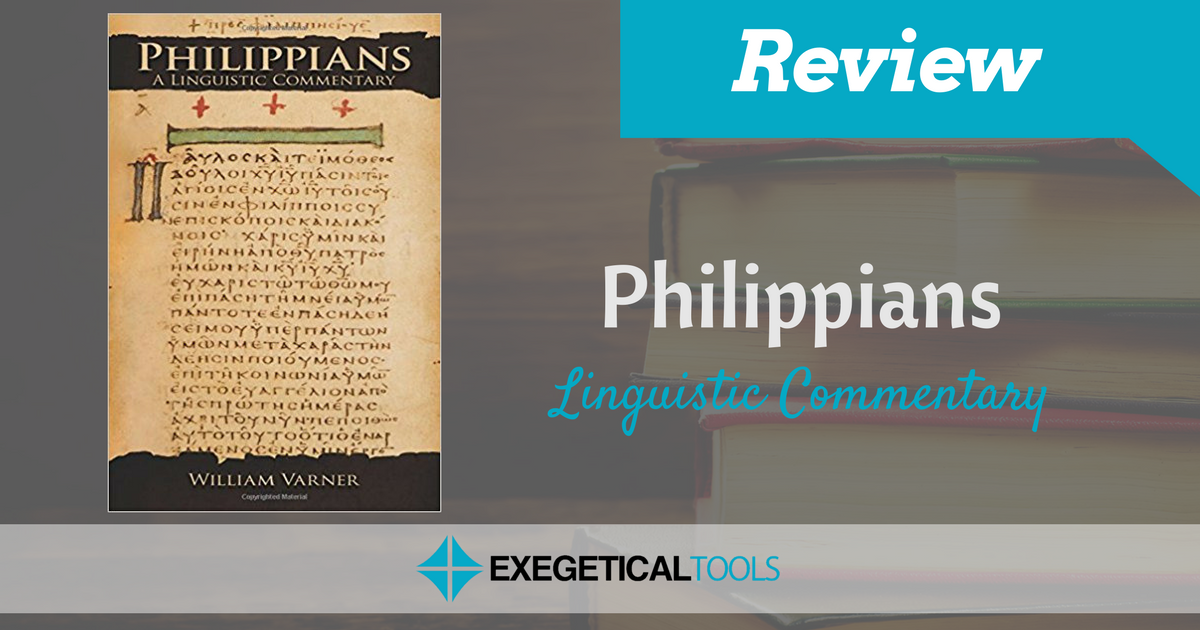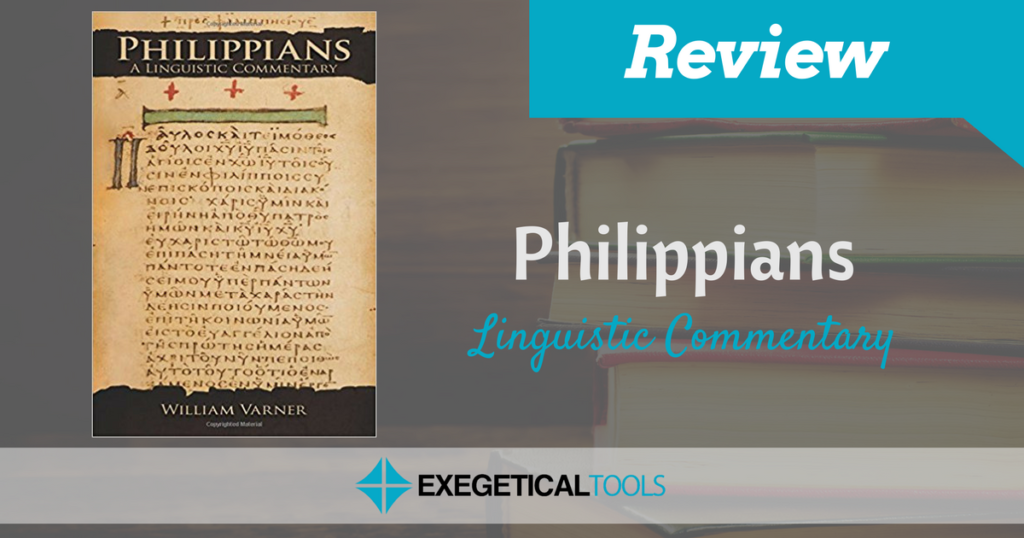William Varner is Professor of Biblical Studies at The Master’s College and author of several books, including his magnificent James commentary (Fontes, 2017). He has now added to his illustrious writing career this new linguistic commentary on the Greek text of Philippians.
Varner also loves creative pedagogy, which he regularly employs by creating videos working through Greek text. Some he has published with Daily Dose of Greek, and he’s completed series for us working through James and part of Acts, highlighting advanced grammar. Above all, he is our beloved “Papa Nerd,” moderator of the Facebook group Nerdy Language Majors, where lively discussion ensues daily and to which Varner contributes avidly.
Varner’s desire for creative pedagogy is evident in this commentary. It’s become a common topic of discussion this last year that commentaries have become commentaries on commentaries. Rarely does one find a commentary that focuses specifically on the text–the grammar, semantics, and discourse. In that spirit, this new little commentary on Philippians sticks with the text. He cites standard resources such as Robertson, BDAG, etc., and commentaries such as Reumann, but one does not get the sense that he is in it to fight with other commentators. The focus is on Paul and his language.
This handbook is thankfully concise while still retaining immense value. Its concision enables students and pastors to use this book to find the answers they need quickly. We might compare it with a different and longer volume by Joseph Hellerman’s in the EGGNT series. Hellerman focuses on the sentence-level (as the entire series does) and is not up-to-date with linguistic advances. It is good with syntax, but that’s its main strength.
Varner, by contrast, has a helpful introduction, which includes information on the linguistic background of Philippi, a brief summary of Philippians’ literary unity, a solid 5-page description of his method of discourse analysis (which everyone should read!), an explanation of the various kinds of text-critical methodologies (he sticks with reasoned eclecticism, but you can read his primer on all methodologies here), and a discussion of the difference between verbal aspect and Aktionsart. It is difficult to find such important linguistic information packed into so few pages with such accurate scholarship.
As far as I can tell, he gives the function of every word in every verse. The EGGNT comments on difficult syntax and on phrases, but Varner gives you a guide to every word! Often the explanation is simple, such as “Subject of the verb,” but beginning Greek students will appreciate these comments (I do remember the days when finding the subject was a difficult task).
Varner also discusses the major textual variants with their witnesses, citing Metzger for good analysis and referring to the THGNT when appropriate. I believe the EGGNT volume does so as well, so on this matter they are tied! But I hope all will view these volumes not as in competition, but as two useful and complementary handbooks on Philippians.
If you’re looking for a study plan for Philippians, let me suggest that you get Varner’s Philippians as well as our Philippians Greek Reading Videos. Translate the paragraph yourself first, using whatever resources you have. Then consult Varner, and finally watch the videos by Giacobbe and compare/contrast the observations by both authors. Make sure to try to figure out every problem yourself first, since you won’t learn if you don’t dig! Hellerman’s Philippians would also make a good third resource to check your work.
Buy them here…
Also by William Varner…


